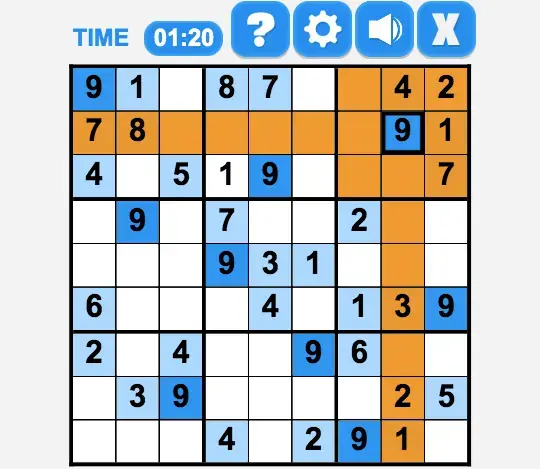The History of Sudoku Games Over the Years

Sudoku has slowly grown to be one of the most popular logic games of all time, up there with chess, checkers, and crosswords. While it started with humble beginnings, it is now involved in almost every single newspaper in the United States. Sudoku has come a long way since its birth, and its history is surprisingly interesting. Without further ado, let’s jump into the history of Sudoku.
Latin Squares
To start with the history of Sudoku, we have to go all the way back to 18th century Switzerland, where Swiss mathematicians started playing a game called ‘Latin Squares’. While Latin Squares does not have the exact same rules as Sudoku, it has a similar layout and instructions to it. Most people consider Latin Squares to be the birth of Sudoku.
Skip forward a couple of decades and the game started getting published in French newspapers, dating all the way back to 1895. This was one of the first times that a game resembling Sudoku was published anywhere to the mass public, although it was still known as Latin Squares when it was released to the public.
The History of Sudoku
Despite many people considering Latin Squares to be the birth of Sudoku, the modern Sudoku that we all know and love today was officially created by Howard Grans in Connersville, Indiana. Yes, you heard right, Sudoku is not a game made several millennia ago in an ancient Japanese village or anything. The history of Sudoku began right in the middle of the United States in Indiana. In 1979, Howard published Sudoku in the Dell Pencil Puzzles and Word Games magazine. While it was actually called ‘Number place’ back then, it had the same rules and regulations as the Sudoku that we play today.
Sudoku Gets Popular in Japan
Five years later, the game appeared in Japan. A crossword puzzle with English words doesn’t translate very well in Japanese, so something like Sudoku that uses words was a perfect replacement. Instead of Number Place, Japan called it ‘Sūji wa dokushin ni kagiru’, meaning ‘the digits are limited to one occurrence.’ It doesn’t really roll off the tongue very well. However, this was eventually shortened to Sudoku, and it has stuck ever since. In fact, there are 600,000 Sudoku magazines purchased every month in Japan, making it one of the most popular puzzle games there.
Interestingly enough, a lot of people think that Sudoku works so well due to the puzzle game culture in Japan. Public transport is often used by people to get around the cities, so people will play puzzle games to pass the time. Considering that there is no language barrier in Sudoku, playing this American game has become a very common activity there.
Moving to the Western World
Despite Sudoku originating in America, it had not become nearly as popular in the Western world as it was in Japan. However, a New Zealand judge named Wayne Gould helped change that in 1997. That March, he discovered Sudoku in a Japanese bookstore and was captivated by it. Over the next six years, he devoted his time to developing a computer program that could run Sudoku.
2004 was a big year for Sudoku. Not only did the Times of London publish its first Sudoku in the newspaper, but The Conway Daily Sun did as well, an American newspaper based in New Hampshire. While this may not seem like a big deal, this was a huge step in the history of Sudoku. Within the next few years, Sudoku had caught fire and become beloved on a national scale. Tournaments across the world in countries like Italy and Beijing started getting hosted on a consistent basis. Sudoku finally had a worldwide audience that was passionate about the 81-tiled game.
Sudoku's Popularity
So why has Sudoku caught on so much in the past couple of decades in the Western world? Many people believe that with the world getting faster and faster, it is nice to have a game where you can just slow down and think. Sudoku is all about strategy and mulling over the different options until you find a tile that that there is only one option for.
Sudoku is a fun and easy-to-learn game. If you haven’t played it, we recommend trying it out here at Coolmath Games. You won’t regret it! However, f you want to learn more about Sudoku before you start, feel free to check out our blog on how to play Sudoku, as well as our blog on Sudoku Strategy.